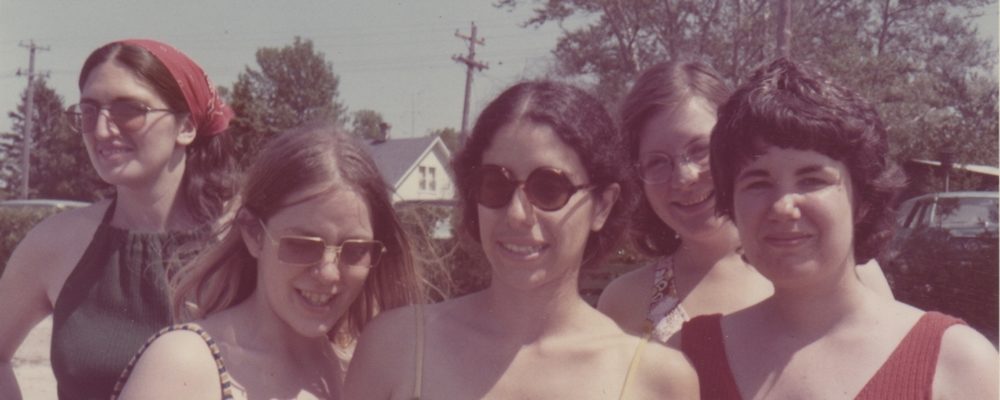‘The Janes’ Paints a Vivid Portrait of Pre-Roe v. Wade Life Without Abortion Rights
Sandra Miska
With Roe v. Wade currently in danger of being overturned by the Supreme Court, there is talk of going back to the days when women had to resort to desperate measures to deal with unwanted pregnancies. However, those of us who were not alive pre-1973 do not know exactly what that would look like, but the illuminating HBO documentary “The Janes” paints a vivid picture. Tia Lessin and Emma Pildes’ film tells the story of a group of brave women activists known as the Janes, who went around the law to perform an estimated 11,000 safe and affordable abortions in the Chicago area from 1968-1973.
Social norms pertaining to sex may have shifted in the sixties, but as the Janes, who were mostly college students in that era, explain, women were still heavily restricted. The birth control pill was a game-changer when it was approved by the FDA in 1960, but doctors would only prescribe it to married women. While there is a humorous anecdote about women being advised to buy cheap rings to put on their left ring fingers in order to obtain contraceptives, most of the stories told here are more sobering. The doc opens with a woman named Dorie Barron recalling a $500 abortion she received through a mob connection. It was done by a man in a motel room who barely spoke to her and left immediately after. From how she tells it, she was lucky to survive the ordeal without any major complications, but others we hear about were not so lucky. Yes, abortions have always been available to those who could afford them, but many of those women faced sexual abuse, bodily harm, and worse.
The Jane Collective, which offered an alternative to back alley abortions, was born from the progressive anti-war movement of the sixties. Lessin and Pildes do an excellent job of encapsulating the events that took place in Chicago during this era, ones depicted in recent films like “The Trial of the Chicago Seven” and “Judas and the Black Messiah,” and examine that world through a female perspective. Patriarchy rules all corners of society, not just the health care system, and Heather Booth, who learned about standing up to unjust laws while fighting for civil rights, describes breaking away from the campus progressive group Students for a Democratic Society after a male member told her to shut up for speaking up about women’s issues. Marie Leaner, one of the few Black members of the Jane Collective, states that although she had respect for the Black Panthers and called Fred Hampton a friend, she never joined the party due to their stance of female members having to serve the men. The Chicago Women’s Liberation Union soon was formed, and from there the Jane Collective was birthed after Booth and others saw the demand around them for safe and affordable abortions. Such was a need for this service that a major hospital in the area had a whole unit dedicated to treating woman who had septic infections from botched abortions.
One of the most revealing truths from “The Janes” is that the sexist attitudes of the day actually worked in favor of the group in a way. As a member named Katie puts it, those in charge underestimated what women were capable of, which allowed them to operate under the radar for five years, despite putting fliers up all over Chicago with their number, telling women in trouble to call and “ask for Jane.” Those who made appointments were picked up by one of the women and taken to a secret location, one that was constantly changing. At first, the abortions were performed by a man, Mike, but he eventually left for his own safety, but not before teaching the Janes how to perform them themselves. Something else that was important was the fact that many powerful men, including those in the predominately Irish-Catholic police force, turned a blind eye because they had wives, mistresses and daughters who needed abortions. Sgt. Ted O’Connor desribes in striking detail how he and his partner only busted the Janes after two anti-abortion women made a report.
Lessin, Pildes and their fascinating subjects make the case that the Janes were just ordinary women who were called to duty because of a system that failed them. There’s an important discussion here about how reproductive rights impacts race and class, because after abortion was made legal in New York in 1970, the Janes’ clientele became mostly low-income women, many of them women of color, because those with means were able to travel for the procedure. A more lighthearted factoid mentioned is the unlikely alliance between Hugh Hefner and the church, as Playboy ended up giving money to the liberal religious group Clergy Consultation Service after they came out in support of abortion rights. All in all, this is a thought-provoking documentary that will inspire viewers to never take their own rights for granted, and, most importantly, to use their own voice and power when it comes to voting and activism.
“The Janes” releases June 8 at 9 p.m. ET on HBO.

